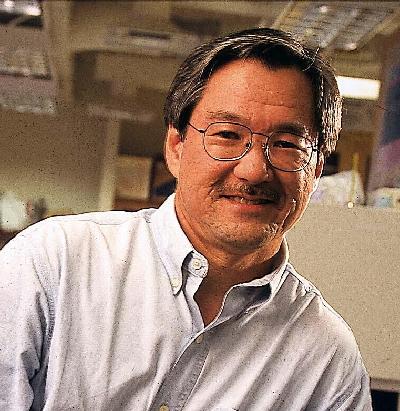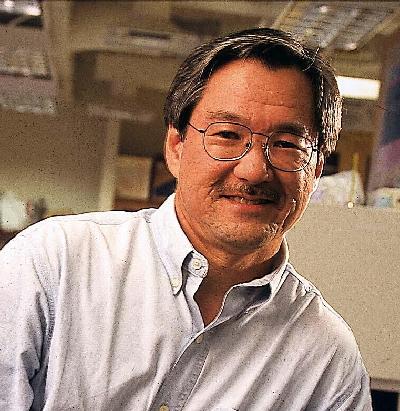May 6, 2004
Circadian clock is topic: Joseph Takahashi to present Hille Lecture
Dr. Joseph Takahashi, investigator with the Howard Hughes Medical Institute and professor of neurobiology and physiology at Northwestern University, will present the annual Einar Hille Memorial Lecture in Neurosciences sponsored by the Department of Physiology and Biophysics. He will speak on “Genetics and Molecular Neurobiology of Circadian Clocks in Mammals” Thursday, May 13, at 4 p.m. in room T-625 of the Health Sciences Center.
Takahashi studies how our bodies keep track of time. All living systems have an internal clock that, even in the absence of external cues like day and night changes in light level, produces 24-hour oscillations in physiology and behavior. This circadian clock is at least partially responsible for jet lag after traveling across time zones. Circadian clocks are reset by external cues, particularly day/night changes in light level. Hence, we can readjust our internal clock after moving from one time zone to another. Takahashi has been studying these circadian clocks for his entire scientific career.
His lab uses genetic approaches to identify key components of the circadian system and understand how these components work in concert to control behavior. In 1997, Takahashi and colleagues identified the first mammalian circadian rhythm gene, clock. Mutations in this gene produce abnormally long circadian rhythms. The team proceeded to identify several partners and targets of the “clock” protein and showed that mutations in the genes encoding these components disrupt the circadian cycle.
More recently, the Takahashi lab has used modern molecular techniques to search for genes whose expression cycles with the circadian clock. The surprising result was that nearly 10 percent of the genes in a given part of the body cycled, but that the genes that cycled were very different from one tissue to another. This work highlights the importance of circadian rhythms in controlling many physiological functions.
Takahashi received his bachelor’s degree in biology from Swarthmore College and his Ph.D. in biology from the University of Oregon. His postdoctoral training was at the National Institutes of Health. In 1983, he joined the faculty at Northwestern and in 1997 he became an investigator with the Howard Hughes Medical Institute. He is the director of the Center for Functional Genomics at Northwestern. Among other honors, he was elected to the National Academy of Sciences in 2003.
The Einar Hille Memorial Lecture in Neurosciences was established by Kristi Hille in honor of her late husband. Mrs. Hille passed away in November of 2001 at the age of 95. Dr. Hille was a professor of mathematics at Yale University and a member of the National Academy of Sciences. Their son, Dr. Bertil Hille, is a professor of physiology and biophysics at the UW.


